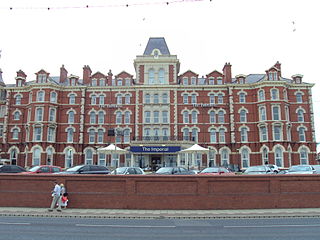Facts
Quin & Axtens Ltd was set up as a business of drapers, furnishing and general warehousemen at 422 to 440 Brixton Road, Brixton. Williams Axtens was the chairman. Joseph Salmon and another man, Arthur Way, were managing directors. Mr Boys-Tombs replaced Way in 1906. Axtens and Salmon held the majority of shares.
The constitution said no resolution would be effective if either Axtens or Salmons dissented (art 80). The directors were otherwise to manage the company (art 75). Axtens and Boys-Tombs wanted to buy and let some properties (buy 426 Brixton Road and let out 252 Stockwell Road), but Salmon disagreed. Then an extraordinary general meeting was held, where the same resolution was passed by a majority of shareholders.
Judgment
Lord Loreburn LC in the House of Lords upheld the Court of Appeal decision (with Lord Macnaghten, Lord James of Hereford and Lord Shaw of Dunfermline concurring), and stated:
The bargain made between the shareholders is contained in articles 75 and 80 of the articles of association, and it amounts for the purpose in hand to this, that the directors should manage the business; and the company, therefore, are not to manage the business unless there is provision to that effect. Further the directors cannot manage it in a particular way--that is to say, they cannot do certain things if Mr. Salmon or Mr. Axtens objects. Now I cannot agree with Mr. Upjohn in his contention that the failure of the directors upon the objection of Mr. Salmon to grant these leases of itself remitted the matter to the discretion of the company in general meeting. They could still manage the business, but not altogether in the way they desired.
Next, in regard to the second point I think it is really too clear for argument that the business in question was business within the meaning of the 75th article.
The only question of substance to my mind is the third contention of Mr. Upjohn, when he said that the word "regulations" as employed in the 75th article includes at all events, if it is not equivalent to, directions whether general or particular as to the transaction of the business of the company. Now it may be a question for argument, but for my own part I should require a great deal of argument to satisfy me that the word "regulations" in this article does not mean the same thing as articles, having regard to the language of the first of these articles of association. But, whether that be so or not, it seems to me that the regulations or resolutions which have been passed are of themselves inconsistent with the provisions of these articles, and therefore this appeal fails, and I move your Lordships that the appeal be dismissed with costs. [1]

A board of directors is an executive committee that jointly supervise the activities of an organization, which can be either a for-profit or a nonprofit organization such as a business, nonprofit organization, or a government agency.

Salomon v A Salomon & Co Ltd[1896] UKHL 1, [1897] AC 22 is a landmark UK company law case. The effect of the House of Lords' unanimous ruling was to uphold firmly the doctrine of corporate personality, as set out in the Companies Act 1862, so that creditors of an insolvent company could not sue the company's shareholders for payment of outstanding debts.

Hutton v West Cork Railway Co (1883) 23 Ch D 654 is a UK company law case, which concerns the limits of a director's discretion to spend company funds for the benefit of non-shareholders. It was decided in relation to employees in the context of a company's insolvency proceedings.

The United Kingdom company law regulates corporations formed under the Companies Act 2006. Also governed by the Insolvency Act 1986, the UK Corporate Governance Code, European Union Directives and court cases, the company is the primary legal vehicle to organise and run business. Tracing their modern history to the late Industrial Revolution, public companies now employ more people and generate more of wealth in the United Kingdom economy than any other form of organisation. The United Kingdom was the first country to draft modern corporation statutes, where through a simple registration procedure any investors could incorporate, limit liability to their commercial creditors in the event of business insolvency, and where management was delegated to a centralised board of directors. An influential model within Europe, the Commonwealth and as an international standard setter, UK law has always given people broad freedom to design the internal company rules, so long as the mandatory minimum rights of investors under its legislation are complied with.
O'Neill v Phillips[1999] UKHL 24 is a UK company law case on an action for unfair prejudice under s.459 Companies Act 1985. It is the only case thus far in the House of Lords on the provision and it deals with the concept of members of a business having their "legitimate expectations" disappointed.

Ebrahimi v Westbourne Galleries Ltd [1973] AC 360 is a United Kingdom company law case on the rights of minority shareholders. The case was decided in the House of Lords.

Bushell v Faith [1970] AC 1099 is a UK company law case, concerning the possibility of weighting votes, and the relationship to section 184 of Companies Act 1948 which mandates that directors may be removed from a board by ordinary resolution.

Southern Foundries (1926) Ltd v Shirlaw [1940] AC 701 is an important English contract law and company law case. In the field of contracts it is well known for MacKinnon LJ's decision in the Court of Appeal, where he put forth the "officious bystander" formulation for determining what terms should be implied into agreements by the courts. In the field of company law, it is known primarily to stand for the principle that damages may be sought for breach of contract by a director even though a contract may de facto constrain the exercise of powers to sack people found in the company's constitution.

Williams v Natural Life Health Foods Ltd[1998] UKHL 17 is an important English tort law, company law and contract law case. It held that for there to be an effective assumption of responsibility, there must be some direct or indirect conveyance that a director had done so, and that a claimant had relied on the information. Otherwise only a company itself, as a separate legal person, would be liable for negligent information.

Attorney General of Belize v Belize Telecom Ltd[2009] UKPC 10 is a judicial decision of the Privy Council in relation to contract law, company law and constitutional law. It concerns the correct method for interpretation and implication of terms into a company's articles of association.

Pender v Lushington (1877) 6 Ch D 70 is a leading case in UK company law, which confirms that a company member's right to vote may not be interfered with, because it is a right of property. Furthermore, any interference leads to a personal right of a member to sue in his own name to enforce his right. As Lord Jessel MR put it, a member:
has a right to say, "Whether I vote in the majority or minority, you shall record my vote, as that is a right of property belonging to my interest in this company, and if you refuse to record my vote I will institute legal proceedings against you to compel you."

Barron v Potter [1914] 1 Ch 895 is a UK company law case, concerning the balance of power between the board of directors and the general meeting. It stands for the principle that when the board is incapable of taking action, power to conduct the company's affairs will revert to the general meeting.

Allen v Gold Reefs of West Africa Ltd [1900] 1 Ch 656 is a UK company law case concerning alteration of a company's articles of association. It held that alterations could not be interfered with by the court unless a change was made that was not bona fide for the benefit of the company as a whole. This rule served as a marginal form of minority shareholder protection at common law, before the existence of any unfair prejudice remedy.

Guinness plc v Saunders [1989] UKHL 2 is a UK company law case, regarding the power of the company to pay directors. It required that whatever rules exist for payment in the company's articles, they must be strictly observed.

Automatic Self-Cleansing Filter Syndicate Co Ltd v Cuninghame [1906] 2 Ch 34 is a UK company law case, which concerns the enforceability of provisions in a company's constitution.

Imperial Hydropathic Hotel Co, Blackpool v Hampson (1883) 23 Ch D 1 is a UK company law case, concerning the interpretation of a company's articles of association. On the specific facts it has been superseded by the Companies Act 2006 section 168, which allows a director to be removed through an ordinary majority resolution of the general meeting.
Selfridge Provincial Stores was a holding company of a group of department stores in the United Kingdom. The company was formed by Selfridge & Co. in 1926 and was active until 1940.

Eclairs Group Ltd v JKX Oil & Gas plc[2015] UKSC 71 was a decision of the United Kingdom Supreme Court relating to the exercise of directors' powers for a proper purpose under English company law.

Citco Banking Corporation NV v Pusser's Ltd[2007] UKPC 13 is a judicial decision of the Privy Council on appeal from the British Virgin Islands in relation to the validity of amendments to the memorandum and articles of association of a company, and the requirement of shareholders to exercise the votes attached to their shares in the best interests of the company as a whole.

Ciban Management Corporation v Citco (BVI) Ltd[2020] UKPC 31 is a decision of the Judicial Committee of the Privy Council on appeal from the British Virgin Islands relating to directors' duties and the legal rule known as the Duomatic principle.












